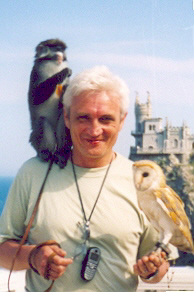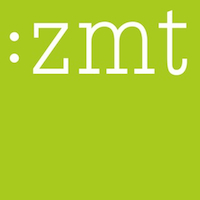Poll: Can you identify differences between human and machine translations? Vestluse postitaja: ProZ.com Staff
|
|---|
This forum topic is for the discussion of the poll question "Can you identify differences between human and machine translations?".
View the poll results »
| | | |
When people reply 'definitely', I'd like to know how exactly, based on which criteria, they sort out machine errors and human errors, repeat, sort out the errors only
| | | |
Johan Beyens
Belgia
Local time: 09:30
Liige (2024)
inglise - hollandi
+ ...
| compounds and pronouns | Jan 26 |
At least in my language, Dutch, there are 2 dead giveaways:
- incorrectly translated compound words (incorrect insertion of spaces, incorrect morpheme sequence)
- pronouns not taking into account the grammatical gender of their referent
| | | |
Lingua 5B 
Bosnia ja Hertsegoviina
Local time: 09:30
Liige (2009)
inglise - horvaadi
+ ...
The kind of mistakes a machine makes could never be made by a human. Humans make different kinds of errors.
| | |
|
|
|
Zea_Mays 
Itaalia
Local time: 09:30
Liige (2009)
inglise - saksa
+ ...
| No answer possible - question is too vague | Jan 26 |
What machine translations are meant? Of complete texts or of single sentences?
Based on my experience, the more the source text is complex and context sensitive, the more machine translations are recognisable as such.
| | | |
Portuguese grammar is a mine field, especially with regard to plurals, gender and verb conjugation…
| | | |
Gennady Lapardin wrote:
based on which criteria
I didn't reply "definitely", and it's not really a question of errors in the French-English material I've seen.
But MT always translates "plusieurs" as "several", when "more than one" or "a number of" is often better, and always "ainsi que" as "as well as" when often "and" is all that is needed.
However, I've seen humans who do the same.
There are other similar signs but those two always spring to mind.
| | | |
expressisverbis
Portugal
Local time: 08:30
Liige (2015)
inglise - portugali
+ ...
I think the most blatant difference is the lack of creativity on the side's of machines.
It generally struggles with tasks that only humans can handle it: idiomatic expressions, tone and style, localisaton, transcreation, capacity to solve ambiguous terms/expressions in a given context.
However, there are also human translators who lack a lot of creativity.
[Edited at 2025-01-26 12:55 GMT]
| | |
|
|
|
Gennady Lapardin wrote:
When people reply 'definitely', I'd like to know how exactly, based on which criteria, they sort out machine errors and human errors, repeat, sort out the errors only
In Spanish, it could be from flagrant inconsistencies:
* on gender,
* on plural of verb's conjugations,
* on dates/numbers format.
Also, on wrong verb tenses and wordiness.
And I won't start to tell about vocabulary/grammar that is not used in certain Spanish variants, and it's the *only* option machines use/have in their LLM database and most of the time makes no sense if the reader isn't born and raised in Spain.
[Edited at 2025-01-26 20:11 GMT]
| | | |
Zea_Mays 
Itaalia
Local time: 09:30
Liige (2009)
inglise - saksa
+ ...
Have you ever used Google Translate integrated into Facebook? ...
| | | |
Samuel Murray 
Madalmaad
Local time: 09:30
Liige (2006)
inglise - afrikaani
+ ...
1. Google Translate inserts an invisible control character in some sentences.
2. Unnatural compound nouns, e.g. studie + dokter = studiesdokter (no human would do that).
3. Dutch-style compound-S, e.g. Dutch adds compoung-S after an existing S, while Afrikaans never does that.
4. Illogical translations, e.g. if a list of items contains multiple items that have identical translations in Afrikaans, the machine translated list will contain two of the same words. (That said, I've s... See more 1. Google Translate inserts an invisible control character in some sentences.
2. Unnatural compound nouns, e.g. studie + dokter = studiesdokter (no human would do that).
3. Dutch-style compound-S, e.g. Dutch adds compoung-S after an existing S, while Afrikaans never does that.
4. Illogical translations, e.g. if a list of items contains multiple items that have identical translations in Afrikaans, the machine translated list will contain two of the same words. (That said, I've seen some human translators actually do this!!)
From Afrikaans to English: companies are male in Afrikaans. "It was a pleasure working for him" (i.e. for the company).
[Edited at 2025-01-27 13:33 GMT] ▲ Collapse
| | | |
Daryo
Suurbritannia
Local time: 08:30
serbia - inglise
+ ...
| The dead giveaway is when | Jan 28 |
The dead giveaway is when on some 'localised' website you find individual words, (or occasionally groups of words) left simply untranslated by some MT software suffering from a bad case of 'indigestion'.
Especially ridiculous when in the middle of some garbled 'translation into Serbian' - in Cyrillic - you find a word in English, showing that someone's blind faith in MT (and/or penny pinching) went as far as inflicting an unredacted and unchecked MT output on what they expect to be... See more The dead giveaway is when on some 'localised' website you find individual words, (or occasionally groups of words) left simply untranslated by some MT software suffering from a bad case of 'indigestion'.
Especially ridiculous when in the middle of some garbled 'translation into Serbian' - in Cyrillic - you find a word in English, showing that someone's blind faith in MT (and/or penny pinching) went as far as inflicting an unredacted and unchecked MT output on what they expect to be their 'new market'.
Yeah sure, no better way to win friends, I mean new clients.
[Edited at 2025-01-28 23:12 GMT] ▲ Collapse
| | |
|
|
|
Another common error easy to spot in AI MT is in the way adverbs ending in “ly” (manner adverbs in Spanish) are all translated in one monotonous way, using the “mente” suffix.
No creativity, no use of adverbial phrases, no metaphors.
Then, I have read some crazy new adverbs ending in “mente” that are also used together in groups of two or three like in a description, a funny way that I never heard in humans.
| | | |


























